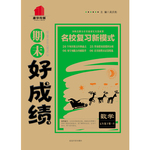题目内容
Do you suppose Darwin, one of the greatest scientists of all time, really did fools experiments? Or did he do experiments that were so simple and basic that other people just thought they were foolish?
Sometimes, people think they already know the answer to a question or the solution to a problem. Sometimes, they really do know an answer or a solution, but without thinking they are important.
Charles Darwin didn’t settle for (满足于) just thinking he knew something. And, he believed all things could be important however simple they seemed to be.
Suppose you drop sheets of paper that are of exactly the same size and shape. If you drop them at the same time in the same place, they will fall in the same way. Now make one of the sheets of paper into a tight little ball and let it drop along with the other sheets. What happens? You have done an experiment that is so simple that you might think it couldn’t be worth anything.
But this simple experiment is important. It explains part of our present-day understandings of physics, ideas that were worked out long ago by Galileo and
Scientists sometimes stop to look at very simple things and to think very hard about them. Even the simplest idea, which we might think is foolish, can shake the foundations of science.
60. The passage tells us that Charles Darwin ____.
A. was a great English scientist
B. always liked doing the experiments that others thought difficult
C. thought even the simplest thing was important
D. didn’t get well with others
61.The phrase “set aside” most probably means____ .
A. throw away B. store up
C. put to use D. realize
62. The author of the passage tries to ________.
A. tell us that Charles Darwin, Galileo and
B. draw the conclusion that basic sciences are simple things
C. prove that two sheets of paper, with the same size and shape, will fall at the same speed
D. draw our attention to everyday happenings around us
63. Which of the following is TRUE?
A. Darwin really did fools experiments.
B. According to some people
C. It is believed by all the people that things could be important though they seemed to be simple.
D. Galileo and

 期末好成绩系列答案
期末好成绩系列答案 99加1领先期末特训卷系列答案
99加1领先期末特训卷系列答案 百强名校期末冲刺100分系列答案
百强名校期末冲刺100分系列答案 好成绩1加1期末冲刺100分系列答案
好成绩1加1期末冲刺100分系列答案 金状元绩优好卷系列答案
金状元绩优好卷系列答案